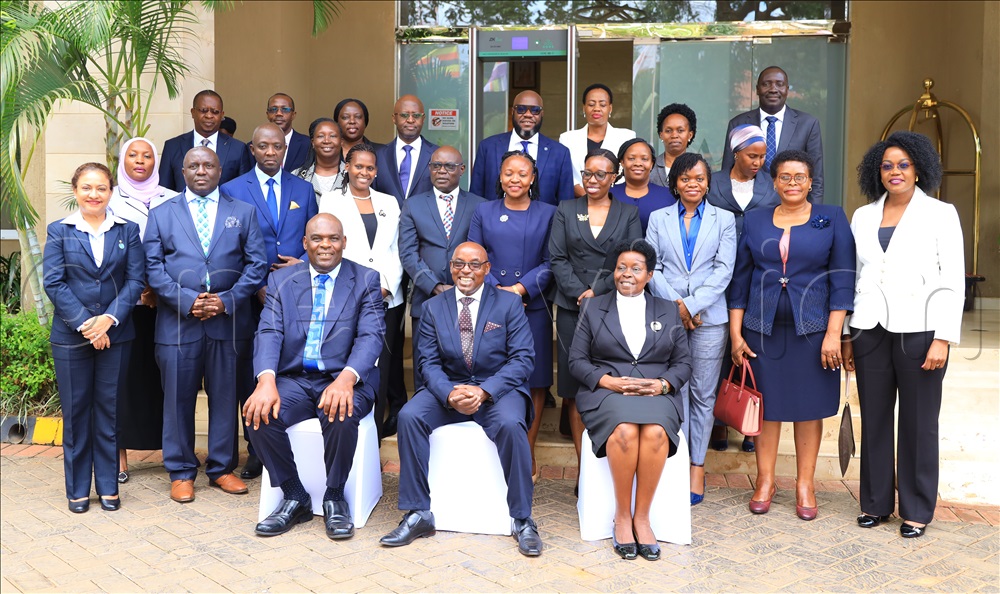
The newly appointed acting judges of the High Court at the start of their indunction session presided over by the principal Judge Flavian Zeija (seated centre), Mike Chibita (seated left) the justice of the supreme court, also a chairperson of the governing council of the Judicial Training Institute and Lady Justice Damalie Lwanga (seated right) the executive director of Judicial Training Institute
In a renewed push for transparency and public accountability, the Djibouti Court of Auditors has launched an intensive training programme to bolster its jurisdictional oversight capabilities.
The initiative, backed by regional partners and the African Development Bank (AfDB), marks a significant stride in the country’s pursuit of sound public financial management.
The first session, focused on “Judging the Accounts of Public Accountants,” began on July 14, 2025, at the Kempinski Hotel. Running through July 24, the training targets magistrates from Djibouti’s Court of Auditors, with a curriculum based on the CREFIAF regional guide, a cornerstone for supreme audit institutions across Francophone sub-Saharan Africa.
“This training embodies our commitment to professionalisation and transparent governance,” declared Ismahan Mahamoud Ibrahim, First President of the Court of Auditors and current President of both CREFIAF and AISCCUF.
“The judgment of public accounts has been fully resumed since 2018 and is central to reinforcing accountability in the management of public funds.”
Participants from Comoros and the Democratic Republic of Congo joined the training, reinforcing regional solidarity and peer learning. “This workshop enhances both technical competence and regional collaboration,” Ibrahim added, emphasising the court’s constitutional mandate to assess public accounts through fair, rigorous procedures that ensure both justice and effective oversight.
Attorney General Madiba Ismael Aouled stressed the importance of the initiative in equipping a growing cohort of new magistrates with essential skills.
“This training arrives at a pivotal moment with the reactivation of our judicial control function and an influx of young professionals. It is both a refresher and a foundation,” she noted.
The training is part of a broader initiative under the PAIC-GEP project—an AfDB-supported programme aimed at enhancing governance in public enterprises. Ali Mohamed Ali, Director of External Financing, lauded the initiative as a cornerstone of Djibouti’s public finance reform. “It reflects our government’s strategic emphasis on institutional capacity building and external oversight,” he said.
The project benefits from a longstanding partnership with Senegal’s Court of Auditors, with Mamadou Thiao, the lead technical advisor, receiving special recognition for his sustained contribution to Djibouti’s institutional strengthening.
As Djibouti continues to position itself as a regional model of financial transparency and accountability, this training marks a key milestone in advancing judicial effectiveness, budgetary discipline, and citizen-focused governance.



